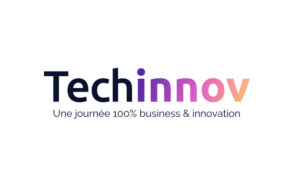

An overloaded world…
Context : The volume of digital data was estimated at 64 zettabytes in 2020, with projections reaching several thousand by 2035.
But what exactly is information overload? Information overload refers to the excessive presence of data (often digital), making it difficult to process and manage shared information.
In this context, collecting, sorting, understanding, sharing, and leveraging the right information is no mean feat! 🤯
We provide our expert opinion on the dangers that poor data management poses to businesses, as well as our recommendations for overcoming this challenge, and the benefits of effective information control.
Don’t let information overload overwhelm you,
simplify your intelligence process and gain a clear and organized view of your market!

When facing information overload, organizing your work is essential. 📂 To do that, start by defining your objectives to guide your research and data analysis. Ask yourself what information you need to collect to meet a specific need or solve a problem in your team, department, or organization.
Automate the process to save time and resources. 💎
Use market intelligence tools that do the work for you (such as Cikisi). This smart and unique solution scans millions of sources, automates data collection, filters based on your needs for precision, and simplifies and shares your collected data. With such a tool, digital information overload is no longer a problem, it becomes your ally over organizations lacking the resources to manage it effectively.
Without commitment, ask here for a demo of Cikisi’s tool and judge by yourself!
Identifying key interest topics, choosing the right sources, and knowing which departments to inform are crucial steps. But without a structured initial approach and a trained intelligence analysts team, even the best tool or process won’t work miracles.
A tool and well-defined processes amplify performance, they are not standalone solutions. Without methodology and expertise, their impact remains non-existent. Train your teams, teach them best practices for sorting and analyzing information, and that is when technology and processes will truly enhance intelligence effectiveness.
You have your intelligence data in hand? Now it is time to process it – 🧠 and make sense of it.
Either data are easy to interpret: a competitor’s product launch, the appointment of a new CEO… These updates are easy to interpret and can be quickly shared.
Either data require deeper analysis: identifying emerging trends, deciphering a competitor’s strategic repositioning… These insights need a more in-depth approach. To avoid confusion, structure your workflow, use visualization tools to clarify raw data and generate relevant reports. Finally, summarize your analyses to make them actionable for your teams. Effective intelligence is intelligence that is shared! 🚀

Check out the share section of Cikisi with our dashboards and reading portals: 👉 Click here
Congratulations, you can now handle information overload and conduct intelligence research that is now optimized! 🎉
Not sure where to start? Cikisi is here to help you.
Discover how to optimize Competitive Intelligence